ICLEI – Local Governments for Sustainability, active in more than 100 countries, is a global network of subnational governments that aims to influence sustainability policy and invigorate local action for low-emission development. ICLEI’s Head of Climate & Energy Action, Rohit Sen, explains to Research Features why a network like this works so well, and how they are building a roadmap to sustainable success.
In a rapidly developing urban world, it is critical that sustainability is considered by local and regional governments to support and build low-impact, environmentally friendly, equitable and resilient developments and communities. This isn’t always easy though, and in order to learn from one another and avoid making the same mistakes in what is an increasingly urgent climate crisis, a truly global and effective network is needed.

ICLEI – Local Governments for Sustainability is such a global network consisting of over 1,750 subnational governments who are committed to sustainable development. By working together, they hope to bring about systemic change in urban areas, for the good of the public and the planet. In this interview with Rohit Sen, Head of Climate & Energy Action at ICLEI, Research Features found out how they aim to reach their goal of 100% renewable cities.
What is the goal and strategy of ICLEI?
At the ICLEI World Congress 2018 in Montréal, local and regional leaders across the ICLEI network released the ICLEI Montréal Commitment and Strategic Vision. This vision orients the path towards urban transformation and sets a course for delivering on the global sustainable development agenda. The Commitment defines low-emission, nature-based, circular, resilient and equitable developments as five interconnected pathways towards sustainability. ICLEI supports these pathways through policy approaches related to governance, innovation and finance.
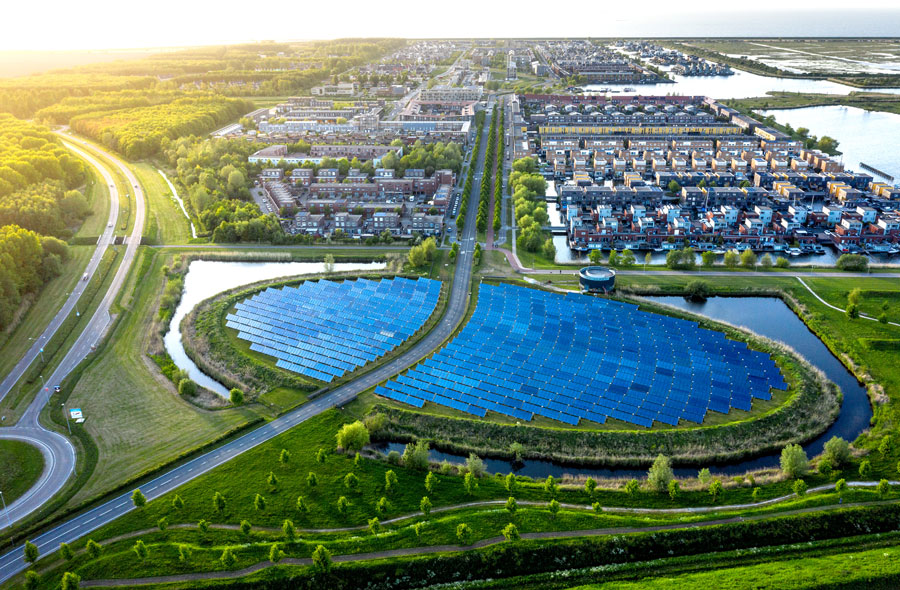
Pavlo Glazkov/Shutterstock.com
By committing to this vision, local and regional governments are leading the way towards a fossil fuel free era, stimulating the green economy through sustainable public procurement, developing urban low-emission, climate-resilient, mobility-friendly development strategies, and more.
Achieving 100% renewables is one of the central pillars needed to deliver on the Paris Agreement, reach net zero emissions and ensure a livable future.
How did you come to be involved with the network personally?
I studied Mechanical Engineering in India, completed a Master’s in renewable energy technologies in Scotland, and then 5 years later, followed it up with a Master’s in renewable energy management in Germany. I have more than ten years’ work experience in the renewable energy sector. Most of my work has revolved around renewable energy off-grid projects, grid-connected projects, green buildings and e-mobility-related projects, both from the implementation as well as research angles. In 2014, I was selected for the Make it in Germany programme; I was one of the ten Indians to be selected to travel to Germany to receive language, intercultural and extensive training and to have the opportunity to work in the German renewable energy industry. After working in a few engineering firms and research organisations, I eventually came to work for a financing platform in Frankfurt, which dealt with crowdfunding of renewable energy and energy efficiency projects. It is here, while networking with people at various conferences, I came across professionals from ICLEI.
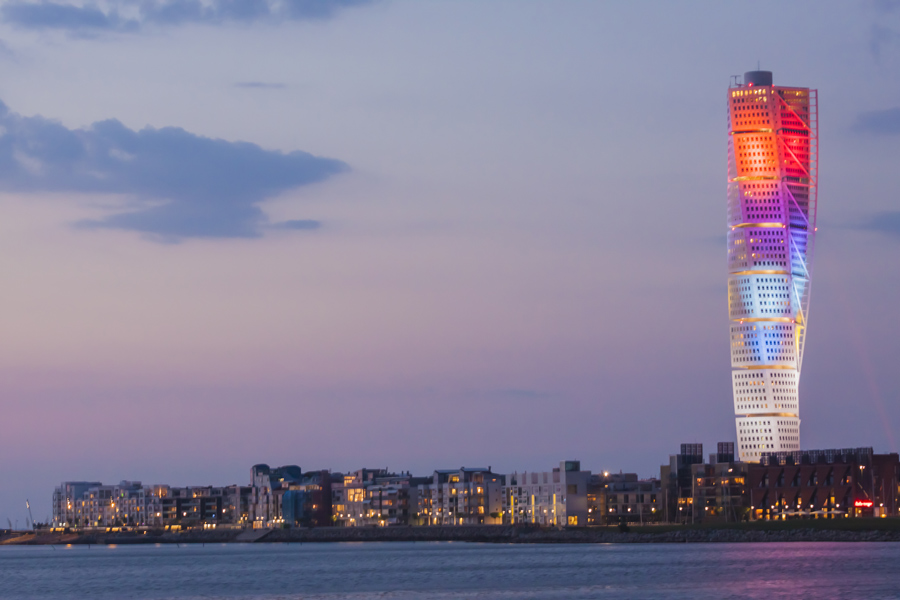
In my line of work on renewable energy projects, I had worked with subnational governments, national governments and private companies. With my expertise, I helped clients with RE project development, design business models, technical and financial due diligence and project implementation. Later, I came across an opportunity to work with ICLEI on the 100% Renewable Cities and Regions Roadmap Project, which I grabbed with both hands, as this gave me the golden chance to work on building 100% RE Roadmaps and bankable RE projects from scratch with the involvement of multiple stakeholders at the same time.
You work with cities and regions at the subnational government level. What does this cooperation look like?
ICLEI’s World Secretariat is based in Bonn, Germany, but ICLEI has a secretary for every region in the world and project offices in various countries. For example, in Southeast Asia the Secretariat is in Manila but they also have an Indonesian office in Jakarta, which looks over projects in Indonesia. In total, ICLEI has around 23 offices all over the world. The ICLEI network refers to the various subnational governments, in this case, various cities and regions, who are part of the ICLEI network. At the moment there are over 1,750 cities and regions which are part of the network.
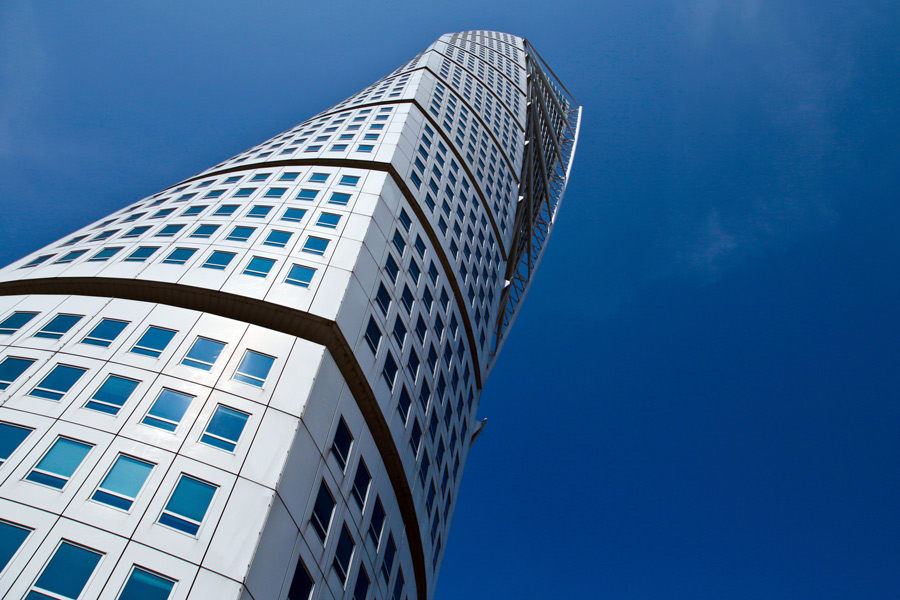
Depending on what expertise is needed and what the project is, the World Secretariat gets involved with the regional offices and together we help the local government directly or indirectly, either in capacity building training, or giving them advice or suggestions based on experience from various previous projects implemented. Of course, as you can imagine, with respect to the way of working, approach, languages, etc., the local governments in Germany are very different from ones in Indonesia; we always try to adjust and be flexible around things. For example, if I’m working with local governments in Kenya, then I would work with my colleagues from the African Secretariat. That is where ICLEI’s strength lies in having regional offices; being aware of the various work and local cultures, we are able to adjust and be flexible.
Can your goal of 100% renewable energy be achieved worldwide? Are there certain targets that you are looking to achieve in the next few years?
It’s not that it is impossible, but it is an ambitious goal! Cities and Regions, in ICLEI’s network, today are going ahead learning from others, figuring out how others did it, not reinventing the wheel or making the same mistakes. There are already many cities and regions that have achieved the 100% RE status. In Germany, the towns of Wolfhagen and Bordesholm have already achieved 100% RE status, the City of Aspen in the United States is another example, and Diu (a small region in Indian) has already achieved 100% RE as well; these are just a few examples out of many. There are many cities like Malmö in Sweden, Frankfurt in Germany, Orlando in the United States and Adelaide in Australia which are already on their way implementing projects to become 100% renewable. Some of them are very close to achieving this, others have made really good progress. This is where ICLEI’s 100% Renewables Cities and Regions Network comes into the picture. These cities can learn from each other; there’s a lot of scope for peer exchange. 500 cities are currently committed to carbon neutrality or being 100% renewable. These commitments are now being translated into various strategy paths or roadmaps and from those roadmaps, we are already seeing projects being drawn out, which are then being financed and implemented. This is not something that will be achieved overnight, it’s going to be a transition in phases, and during this transition phase there will be cities and regions using coal, oil and gas. But certain offset strategies can be implemented as well.

Could you outline the work of the carbonn Center?
The carbonn Climate Center is positioned to take centre stage as a unifying entity in climate work within the ICLEI network. Its goals are to mobilise and support local and regional governments (LRGs) to commit to climate neutrality and pursue all efforts in all sectors to limit global temperature increase to 1.5°C above pre-industrial levels, and to support training to build capacity of subnational governments. The Center will also call subnational governments tackling climate change to report annually on the CDP-ICLEI unified reporting system and review and analyse the reported data for all ICLEI-supported initiatives. It aims to inform climate advocacy messaging through data aggregation and analysis, support multilevel governance and vertically integrated reporting and coordination, and enable project development and access to finance to scale up local climate and energy action. Currently, we are working on redesigning the role of the carbonn Climate Center as a data services provider, technical solutions provider, and think tank, reducing the role of data collection as a main focus of the ‘carbonn’ brand.
ICLEI seeks to harness the momentum built across different levels of governments, academia, the private sector, and civil society, to generate research-driven knowledge that is transferable.
How do you promote sustainability-related research?
The ICLEI Global Research Strategy strives to spark and guide collaborative research activities to enable subnational governments to accelerate sustainable development, informed by robust research. The ICLEI Global Research Strategy seeks to harness the momentum built across different levels of governments, academia, the private sector, and civil society, working hand-in-hand to generate research-driven knowledge that is transferable and gives rise to a more sustainable future. ICLEI encourages collaborative, applied research, engaging stakeholders in knowledge generation processes, multi-disciplinary approach, science-policy-practice interface, city-led research and knowledge brokering to its research agenda.
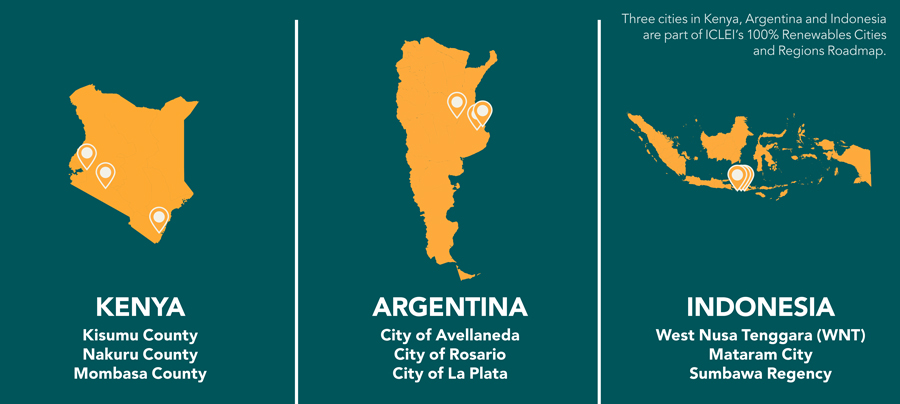
Are there any specific projects or learning experience that you would like to highlight?
One project I’d like to talk about is the 100% Renewables Cities and Regions Roadmap. We have three cities in Argentina, three in Kenya and three in Indonesia, all in different parts of the world, with different topographies, demographics, environment and local requirements. The idea is that for each city (one from each country), we dive deep, develop the 100% renewables roadmap, following the whole process of collecting data, doing energy modelling, and so on. Finally, we will come out with some bankable projects, which can be then implemented as a kick-off to the transition phases. The cities from the three countries are poles apart from each other, they are politically different, the resources are different and their intent towards carbon resources are different. These challenges are very interesting, because everything is different in all the three regions but there’s a lot to learn from each other. At the end, there will be a lot information, knowledge, experience and expertise to exchange under north-south and south-south cooperation with cities and regions in different countries, from diverse parts of the world.
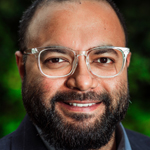
Do you have any events coming up? How can people get involved?
We just concluded a successful Daring Cities 2020 event in October 2020, and the LoCS4Africa virtual congress from 3-12 November 2020. In 2021, ICLEI will be holding the World Congress in April, hosted by Malmö, Sweden. We’re also asking cities and regions who would like to be a part of the 100% Renewables Cities and Regions Network.
It’s important that the knowledge exchange and flow of information happens. We need this transition to 100% renewables to catch on like wildfire for all cities & regions. It’s valuable and imperative for cities in Kenya, Argentina, Indonesia, etc. to know what Orlando or Malmö are doing with their 100% RE plan/strategy; it could be floating photovoltaics or recovering energy from waste, waste management for a circular economy or the transfer of technology and business models, or various innovative financing ways.
10.26904/RF-133-8285
Contact
E: carbonn@iclei.org
W: https://www.iclei.org/
Twitter: https://twitter.com/ICLEI
Facebook: https://www.facebook.com/ICLEIworld
Linkedin: https://www.linkedin.com/company/iclei/










